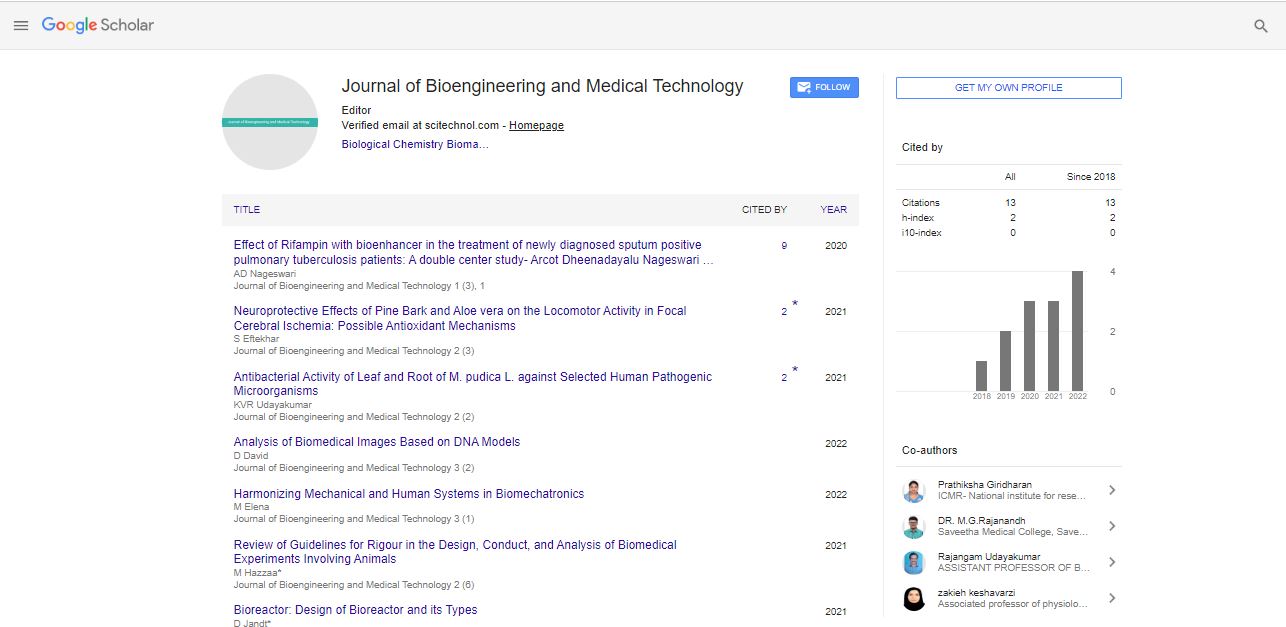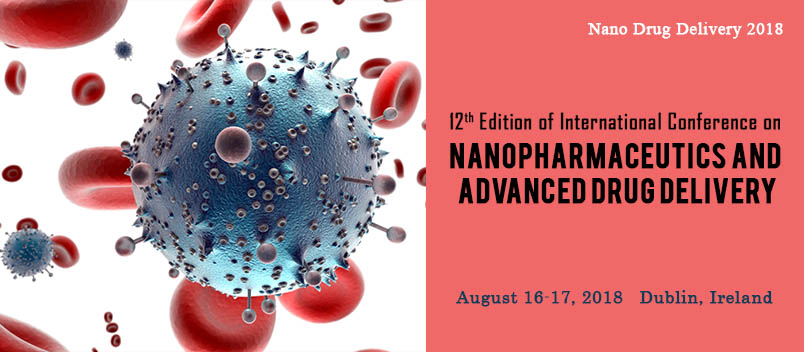Opinion Article, J Bioeng Med Technol Vol: 4 Issue: 2
Artificial Intelligence and Machine Learning in Medical Device Development
Tang Roung*
1Medical Technology Innovation Department, Seoul National University, Seoul, South Korea
*Corresponding Author: Tang Roung,
Medical Technology Innovation
Department, Seoul National University, Seoul, South Korea
E-mail: Roderick6363@edu.kr
Received date: 22 May, 2023, Manuscript No. JBMT-23-107423;
Editor assigned date: 24 May, 2023, Pre QC. JBMT-23-107423 (PQ);
Reviewed date: 15 June, 2023, QC No. JBMT-23-107423;
Revised date: 22 June, 2023, Manuscript No. JBMT-23-107423 (R);
Published date: 29 June, 2023, DOI: 10.35248/jbmt.1000075
Citation: Roung T (2023) Artificial Intelligence and Machine Learning in Medical Device Development. J Bioeng Med Technol 4:2.
Description
The integration of Artificial Intelligence (AI) and Machine Learning (ML) technologies has revolutionized the field of medical device development. By leveraging the power of data analytics, AI and ML have paved the way for more accurate diagnostics, personalized treatments, and enhanced patient outcomes, by exploring the significant role that AI and ML play in the design, testing, and implementation of medical devices. It delves into the challenges and opportunities of this technology-driven approach, while also discussing the ethical considerations in its application.
The medical device industry is continually evolving, with advancements in technology aiming to improve patient care and enhance healthcare professionals' capabilities. AI and ML have emerged as game-changers, enabling the development of smarter, more efficient medical devices that can support diagnosis, treatment, and monitoring, by exploring how AI and ML are transforming medical device development, highlighting the benefits and challenges of their integration.
AI and ML in medical device development
Data-driven decision making: AI and ML algorithms excel in processing vast amounts of data quickly, which is particularly valuable in medical device development. These technologies can analyze patient data, medical records, and clinical trials to identify patterns and trends that might not be apparent through traditional methods. This data-driven approach aids in the identification of potential biomarkers, risk factors, and treatment responses, allowing for more personalized medical device development.
Enhanced diagnostics: AI-powered medical devices, such as imaging systems and diagnostic tools, can significantly improve the accuracy and speed of disease detection. Image recognition algorithms, for example, can analyze medical images, helping radiologists detect abnormalities with higher precision. This not only expedites the diagnostic process but also reduces the likelihood of misinterpretation.
Predictive analytics: Machine Learning algorithms can predict patient outcomes, treatment responses, and disease progression based on historical data. This predictive capability is invaluable for healthcare professionals, as it aids in making well-informed decisions regarding patient care and treatment plans.
Challenges in AI and ML integration
3.1. Data Privacy and Security Medical data is sensitive and subject to strict privacy regulations. Ensuring the security and privacy of patient information while leveraging the AI and ML’s development are a significant challenge. Developers must implement robust data protection measures and adhere to compliance standards to gain and maintain users' trust.
Bias and fairness: AI and ML algorithms can inherit biases from the data they are trained on, leading to skewed outcomes in medical device applications. Recognizing and mitigating these biases is essential to ensure equitable healthcare access and treatment for all patient populations.
Regulatory hurdles: The integration of AI and ML in medical devices poses regulatory challenges due to the rapidly evolving technology. Establishing clear guidelines and standards for the approval and validation of AI-driven medical devices is important to ensure their safety and effectiveness.
Ethical considerations
Transparency: The "black-box" nature of some AI algorithms raises concerns about transparency and accountability. It is vital for developers to develop AI-driven medical devices that provide explanations for their decisions, allowing healthcare professionals to understand and trust the results.
Patient autonomy and informed consent: As AI-driven medical devices become more prevalent; patients must be well-informed about the technology's involvement in their care. Respecting patient autonomy and obtaining informed consent for AI-driven interventions is vital to maintain patient trust.
Future prospects
AI and ML continue to advance rapidly, with the potential for more transformative applications in medical device development. As these technologies mature, people can expect more seamless integration with existing healthcare systems, improved patient outcomes, and expanded possibilities for personalized medicine.
Conclusion
AI and ML are revolutionizing medical device development, offering immense potential for improved diagnostics, treatment, and patient care. While challenges persist, addressing issues such as data privacy, bias, and regulation will unlock the full potential of these technologies. By embracing AI and ML responsibly, the medical device industry can usher in a new era of healthcare innovation that benefits patients and healthcare professionals alike.
 Spanish
Spanish  Chinese
Chinese  Russian
Russian  German
German  French
French  Japanese
Japanese  Portuguese
Portuguese  Hindi
Hindi 
